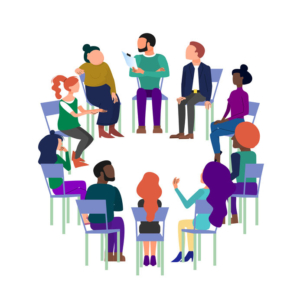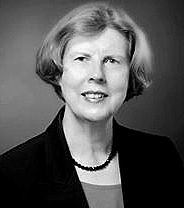Guest Contributor and author, Carol J. Farran, PhD, RN, MSN, FAAN, has served as Professor, Researcher, and Principal Investigator at Rush University Alzheimer’s Disease Center. Based upon her contribution to Alzheimer’s Disease research, she is included as our first Influencer in ABeautifulVoice.org. As a personal friend, she had influenced my thinking about “Hope and Hopelessness,” the title of her book, a decade prior to Mother’s diagnosis. Additional information about her background, professional accomplishments, awards and recognition can be found here on our Influencers’ page.
As a Psychiatric Nurse Practitioner, I fulfilled most of my practice responsibilities on an In-Patient Geropsychiatric Unit. I provided day-to-day assistance to patients on the unit. This included providing basic personal care, providing medications, and conducting support groups with patients who were on the unit and had been determined by staff nurses as meeting qualifications to attend psychiatric group meetings being conducted on the unit.
“All alone and feeling blue”
On one particular day, on my way to the support group meeting, I noticed a comment on the Geriatric Psychiatrist’s office door that said: “Out of office. Returning this afternoon.” Beneath the physician’s official information was a note that appeared to have been left by a patient on the unit that said: “All alone and feeling blue, don’t know what to do….”
As our current Men’s Group was convening in the dining room where we were meeting, I asked group members if any of them had seen the note on the Doctor’s office door. Several of the men said they had seen the note, but others had not.
I proceeded by asking group members, “If we had a chance to talk with this person, presumably another gentleman, what might we say to him? How might we help to comfort him?” 
The men initially talked about how they would feel if they were the ones who felt this way. They identified questions that they could ask him. They discussed that they might suggest they could help him figure out how to solve this problem – or how to “feel better” and what they might say or do.
The Power of Story
The Power of Story, an interview published in The Sun, Issue 534, June 2020, describes the work of Jared Seide, Executive Director of CenterForCouncil.org.
His method is called “Council.” People sit in a circle with an expectation of listening without judgment – and speaking with spontaneity and authenticity. “It may sound simple,” he states, “but it can be transformative in its ability to generate compassion and reduce aggression.”
 Group participants learning to listen – and being heard
Group participants learning to listen – and being heard
This method – “Council” – has been used by Seide with persons in classrooms, assisted living facilities, healthcare, police departments, and in prisons. By sharing and talking with others in similar circumstances, they learn that they are not alone.
Seide states, “The way we behave when we are feeling isolated and dislocated and disconnected is different from the way we behave when we have a sense of connection and community.”
Feeling less disconnected 
We have a deep longing – to listen and to be heard. Connecting with one another can restore our humanity and help us to feel less alone.
It is hypothesized that this same approach may be used with persons in dementia care settings to help people to feel less isolated and alone.
Author: Carol J. Farran, PhD, RN, MSN, FAAN, has served as Professor, Researcher, and Principal Investigator at Rush University Alzheimer’s Disease Center. For more about Carol, see this page.


